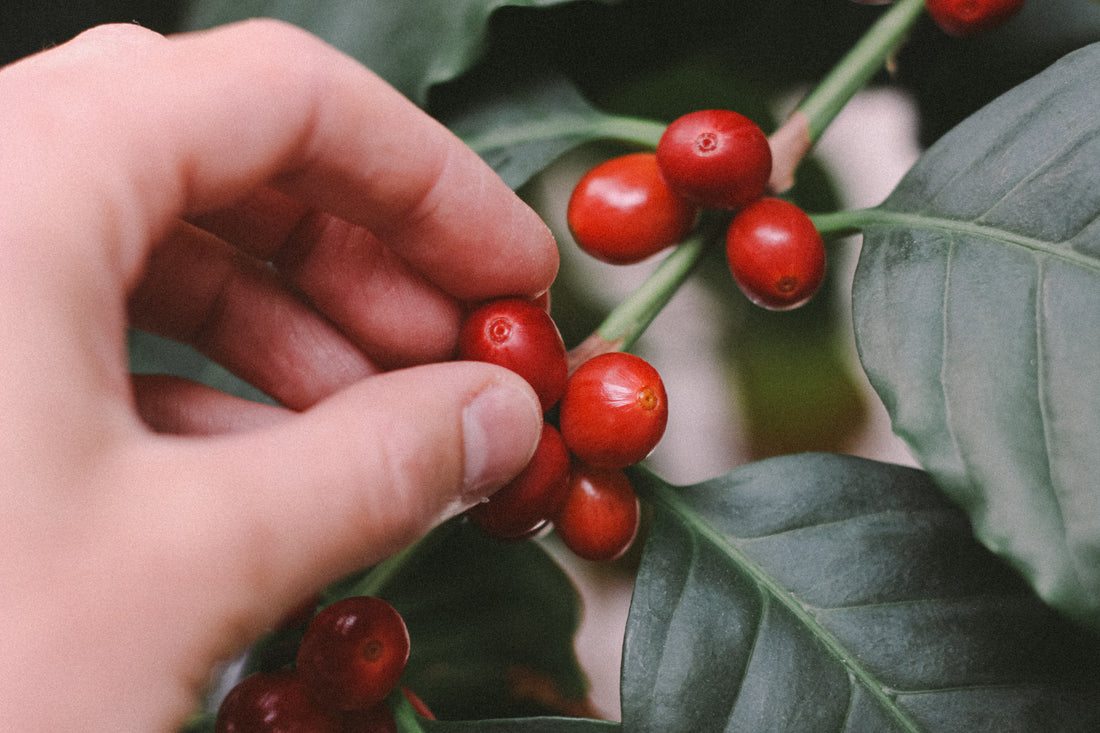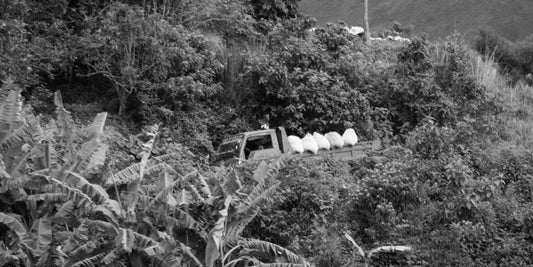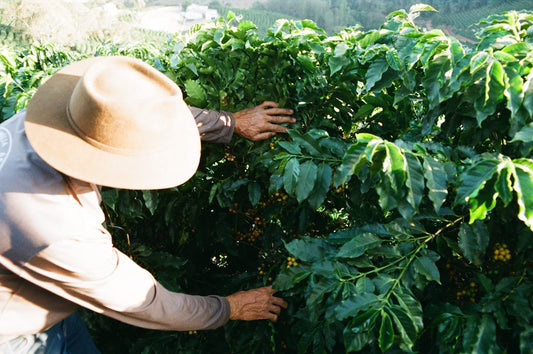
What is speciality coffee and why does it matter?
Provenance is the word on a lot of people’s minds when browsing the supermarket aisles these days. It’s something we’re looking out for more and more when deciding what items go into our shopping trolley/online basket/farmers market tote bag. Meat, fish and dairy are usually the ones at the forefront of this conversation and rightly so. But coffee is fast becoming part of that conversation too. The bottom line is, as the second most traded commodity on earth (after oil), the way your coffee is grown and how ethically it’s been traded really does matter.
DEFINING SPECIALITY COFFEE
We’ve always felt that speciality coffee has a multitude of benefits over commodity coffee. But what exactly do we mean by “speciality coffee”? Let’s start with some definitions. In its most basic form, speciality coffee is defined as any coffee that scores 80 points or more out of 100 on an internationally recognised quality scale. Anyone who is a certified “Q” grader can taste and evaluate a coffee and give it scores based on attributes such as sweetness, acidity, aroma etc. The entire speciality coffee market accounts for only 5% of the total global production of coffee, and as you climb the ladder towards 90 points you start to get into fractions of a percent.
Coffees that achieve speciality status don’t do so by accident. Quality and care need to be the highest priority throughout the entire supply chain at every stage of production.
GROWING SPECIALITY COFFEE
Let’s start with growing conditions. Arabica coffee is a fickle, fussy plant and anyone who’s tried to grow coffee at home will know, frankly it’s a pain in the ass. To get a high quality, good yield you’ll need just the right growing conditions. The slower the fruit ripens the higher density the beans inside will be. The higher density the beans the better the quality. That’s why higher altitude coffees have always been regarded as better because the cool mountain air slows down ripening. Another way of doing this is to increase the canopy cover on your coffee farm. This usually comes in the form of indigenous trees which naturally increase shade and biodiversity.
Techniques such as companion planting which provide natural pest control, higher yields, or encouraging pollinators are also often used on speciality coffee farms. Increase your natural flora and fauna and over time the ecosystem will benefit. Ok, it might not be as simple as that, but the general idea makes sense. Work with nature and it’ll give back. Speciality coffee farmers tend to be much more aware of this relationship with the land these days.
Our Brazil Fazenda Paraiso which is our current Classic release and a 50% component in The Truth is grown by Guy Carvalho who is a great example of responsible farming with biodiversity at its core. He acquired his farm back in 1990 and it’s part of several initiatives to improve high-quality production in Brazil. Fazenda Paraiso is situated in Cabo Verde, a traditional coffee region which has a great microclimate and ideal conditions for growing coffee, but what’s incredible is that more than 20% of his farm is in preserved, indigenous forest. There are also several water springs protected by native vegetation. The dried coffee husks from processing are returned to the tillage in the form of organic compost to further enrich the soil. The farm also benefits from having a beekeeping neighbour, meaning there is a good quantity of natural pollinators during flowering. The farm is located in a mountainous area and the forests run between the coffee plantation, forming a large ecological corridor allowing the transit of wild animals.
That’s nice and romantic, right? Yeah, but the fact is, Guy’s coffee tastes better for it. Because his coffee is so good he can demand a higher price for it which means he’s directly benefiting from his hard work. This same fact is echoed pretty much across the globe; speciality coffee farmers get paid more for their crop. So, next time you reach for the Fairtrade coffee in the supermarket (we’re not dissing Fairtrade, by the way) just remember that speciality coffee will be having the same (or better) economic impact on its producers.
HARVESTING SPECIALITY COFFEE
It is commonly understood that selective harvesting is the easiest way of increasing the quality of coffee. Every farm is different when it comes to harvesting, the topography of the farm, availability of local workers, or the financial backing for mechanized machines will determine how that farm chooses to pick its cherries. When picking cherries for commodity coffee quite often the tree will be “strip picked” which means all the cherries are harvested at once. Great for cost, horrible for quality. Like any fruit tree, coffee trees will ripen from bottom-up and strip picking will mean you end up with ripe cherries, under-ripe cherries and overripe cherries. Not good. Going from strip picking for two picks will increase quality by around 50%. Increase to three or four picks and your quality will exponentially increase. So will your cost. To achieve a speciality grade, selective picking is a prerequisite. This is one of the reasons speciality coffee costs more.
All of the above means three things; speciality coffee is more environmentally and economically sustainable, and it tastes better than commodity coffee. What more do you want? What’s even better is that speciality coffee achieves this as a matter of course. It doesn’t need fancy accreditations or certifications. It’s inherent in the product.





